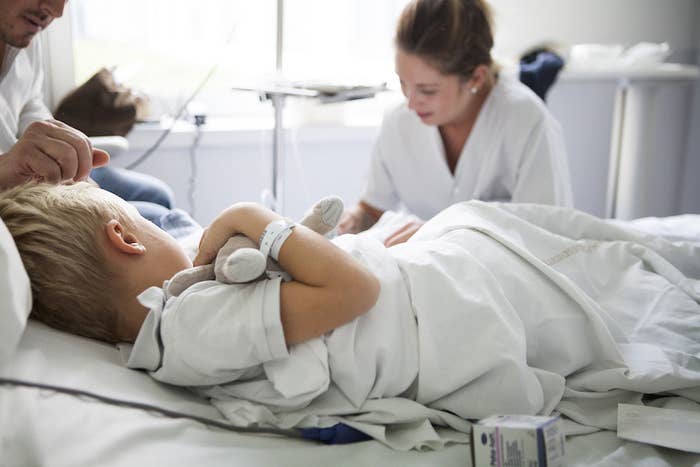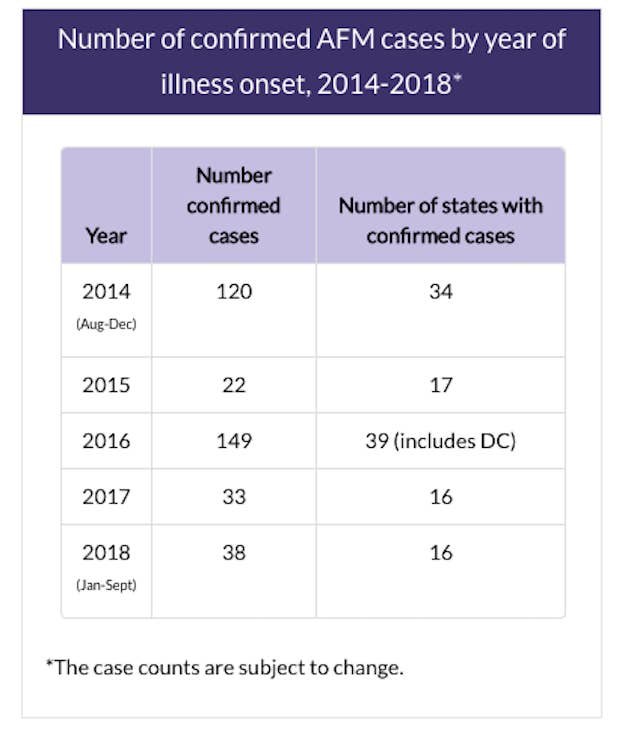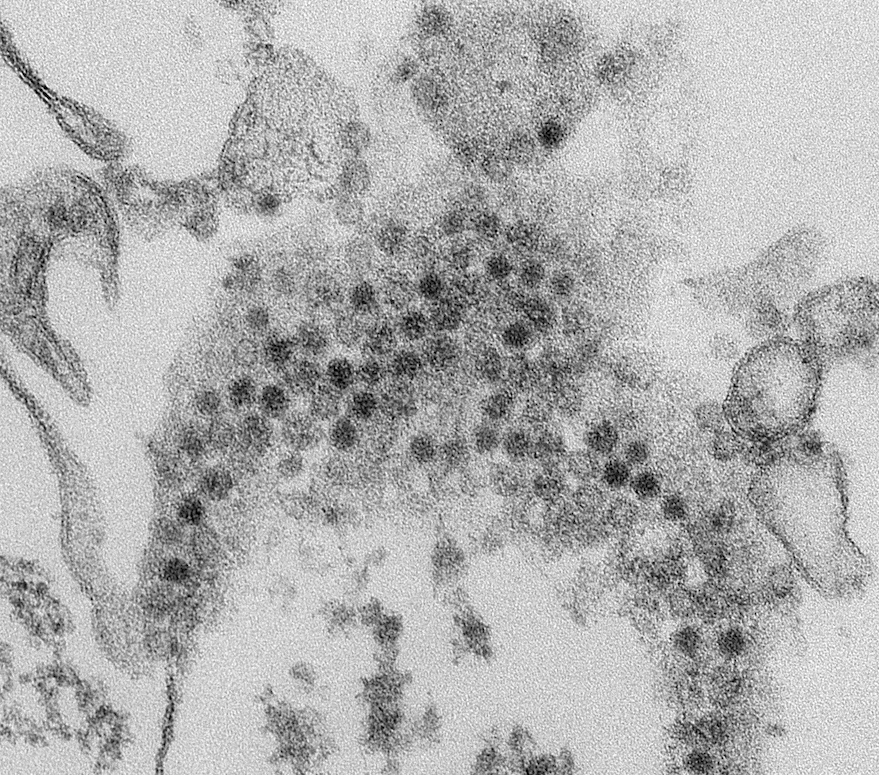
A rare condition that causes polio-like symptoms has been diagnosed in a handful of children in Minnesota, and a total of 38 people in the US so far this year.
Six children in Minnesota have been recently diagnosed with a polio-like condition, which is called acute flaccid myelitis, according to the Minnesota Department of Health.
The children, all under age 10, had symptoms that included muscle weakness or paralysis in the arms and legs, a stiff or weak neck, drooping eyelids or facial drooping, and difficulty swallowing or slurred speech.
The condition, which can occur after a respiratory illness, can be severe and potentially life-threatening. However, none of the children have died of the condition, Kris Ehresmann, director of infectious disease at the Minnesota Department of Health, told BuzzFeed News.
"These kids generally present with sudden muscle weakness in the arms or legs, and a lot of times it will follow a viral illness but not in every case," said Ehresmann. The neurological condition affects the gray matter in the spinal cord, which causes the muscles to become weak, she said. The children can be left with ongoing neurological problems.
"There's a range of recovery," she said. "Some children who are very seriously ill, you can have a situation where there remains some residual neurologic deficient."
The cases were reported in the Minneapolis–St. Paul area, Central Minnesota, and northeastern Minnesota. The state generally sees one or fewer cases of acute flaccid myelitis each year, although there were three cases in 2014.
In 2014, there was a rise in acute flaccid myelitis cases in the US in general, according to the Centers for Disease Control and Prevention, which coincided with a large outbreak of a viral respiratory illness called enterovirus D68, or EV-D68.
EV-D68 can cause symptoms including a runny nose, coughing, and body aches. While some cases occur every year, mostly in children and teens, in 2014 there was an outbreak with 1,153 confirmed cases in 49 states and the District of Columbia.
Although EV-D68 might be responsible for some cases of acute flaccid myelitis, it doesn’t seem to be responsible for all of them, said Ehresmann. Some of the cases have been associated with other germs, she said, including adenovirus, a large group of viruses that cause coldlike symptoms, and West Nile virus, which is spread by mosquito bites and may cause no symptoms at all.
And not every child has had an obvious or identifiable viral infection prior to getting sick.
Some are calling the condition “polio-like” because it can cause paralysis, but it is unlike that highly contagious viral infection in many ways, said Ehresmann. Acute flaccid myelitis is not spread person-to-person like polio, but instead seems to only happen in certain people after a viral infection.
And unlike polio, there is no vaccine for acute flaccid myelitis, she said.

There were 120 cases of acute flaccid myelitis in 2014; 22 in 2015; 149 in 2016; and 33 in 2017. Those cases were collected from 16 to 39 states across the US and only included those reported to the CDC.
So far in 2018, there have been 38 reported cases of acute flaccid myelitis in 16 different states.
The condition is extremely rare, occurring in about one in a million people, the CDC said.
"The key messages are that it’s very serious, but it’s very rare, so that the majority of parents should breathe a sigh of relief and take comfort in that," said Ehresmann.
Parents should stick to any of the ordinary things they do to prevent infections, she said. That includes frequently washing your hands, covering coughs by coughing into your elbow, staying home if you are sick, making sure kids are up to date on vaccines, and protecting yourself and your children from mosquito bites.
If a child does develop weakness in the arms or legs, you should seek medical care right away, she said.
"It's very, very rare but if it does happen ... there are situations where it progresses beyond just the arm that isn’t working or legs that aren’t working, but also affects the muscles that help you breathe," she said. "That’s why it’s important to be evaluated."

